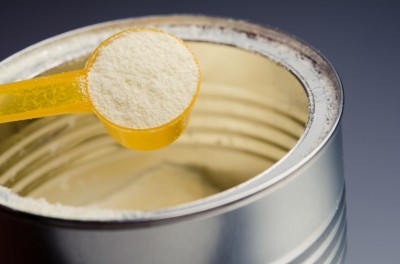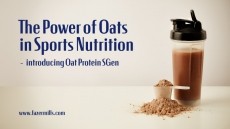Spanish supplement decree promotes 'legal certainty' ... but continues a lack of EU-wide harmonisation

Modifications to Royal Decree 1487/2009 were approved by the Spanish Council of Ministers on 16th March, with details published by the Spanish Agency for Consumer Affairs, Food Security and Nutrition (AECOSAN).
The regulations outline the maximum upper limits of ‘other substances with a nutritional or physiological effect’ (which are not vitamins or minerals) that can be used in the manufacture of food supplements.
The objectives of these new statutes are to ensure consumer protection and improve the competitiveness of Spanish food companies operating in the single market.
The regulations have some positive aspects, while presenting challenges in other areas, suggested EU nutrition and law expert and managing director of Hylobates Consulting, Luca Bucchini.
“The first positive is that Spanish businesses and others doing businesses in Spain have legal certainty over the legal status of some substances, and they can exploit mutual recognition elsewhere.
“The second positive regards EFSA's recent policy. EFSA, while doing excellent work on other matters, has seemed increasingly to prioritise animal data over human evidence to establish permitted levels of other substances in food.
“While this is standard and generally works for new food additives, this is a deviation from the generally accepted scientific practice for nutritional substances, and results in very low permitted levels. The Spanish legislation is generally based on a more rational scientific basis,” Bucchini continued.
Lack of harmonisation
Similar legislation is already in place in other EU member states, so the move will also provide more certainty for external manufacturers doing business in Spain. However, recommended nutrient limits in Spain differ from those previously set in other EU countries.
“Under EU law, Member States can set such legislation as long as they respect mutual recognition. This leads to a patchwork of regulations, which make life difficult for businesses and confusing for consumers,” said Bucchini.
“Until recently, Member States were somewhat hesitant to have such legislation in place, expecting some sort of harmonisation at EU level - but this is not happening, and Member States are legislating on their own more and more.
“In theory mutual recognition should override national legislation, but once national rules are in place it becomes very difficult, in practice, for, say, an Irish food business to sell its formula in Span if it does not comply with local legislation.
“In Northern Europe, the Spanish legislation will be seen as far too liberal. The truth is that Spanish authorities are doing their best within their own legal system to provide legal certainty,” Bucchini added.
Multiple categories
The list of categories of substances covered include polyunsaturated fatty acids, amino acids, flavonoids and carotenoids, polysaccharides and oligosaccharides (including fibre and prebiotic compounds), plus joint care supplements such as glucosamine and chondroitin sulphate.
(It should be noted that with respect to amino acids, the limits specified are the maximum amounts of individual ingredients which can be added to a product. The regulations do not impose a limit on protein powders themselves).
To provide clarification on the way in which they can be commercialised, AECOSAN also included a number of substances considered as ‘traditional dietetics’, which were outside the scope of EU legislation. These substances are: wheat germ, pollen, royal jelly, brewer's yeast, soy lecithin and propolis.
The high degree of detail in the new legislation was perhaps surprising, and may make it cumbersome to keep pace with developments in other Member states, suggested Bucchini.
“Spain’s legislation is notable in that it provides maximum levels for many substances which other Member States did not see the need to regulate in such a detailed manner, assessing products on case by case basis.
“One further problem with Spanish legislation is that it moved very slowly, and it will lack the flexibility of legislation in other Member States for its updating. Some scientific opinions took into account Italy's legislation, which has long changed.”
Impact on sports nutrition
Many of the ‘other substances’ listed in the decree are ingredients (such as amino acids) typically included in sports nutrition products. The legislation may have some adverse impacts in this area, explained Bucchini.
“As for sports nutrition, it will make a difference for compliant businesses, which will have a tougher time to formulate effective products, and will confuse consumers eroding trust in regulation.
“Consumers will come to believe national or EU maximum levels are not a reliable indicator of safety, and end up buying any product. They need to see coherence and readily understand why there is a maximum level.
“The problem is lack of action at EU level, which leads to this type of complications. This lack of attention extends to ensuring EFSA's approach is consistent with available human data, and does not lead to confusing and unnecessary restrictions. The current situation is damaging European businesses and consumers alike,” Bucchini concluded.















